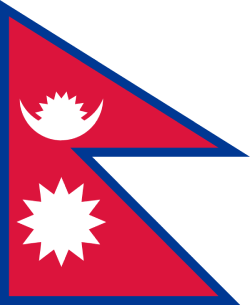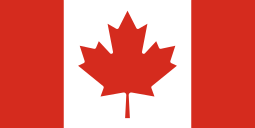Academic Qualifications
To study in Denmark, Nepali students must meet specific academic requirements based on the level of study:
Undergraduate (UG) Programs
Completion of SEE + 10+2 (or equivalent)
Minimum GPA/percentage required (varies by university)
Gap years accepted: Up to 2 years (may vary by institution)
Backlogs: Accepted in moderation (subject to program requirements)
 Postgraduate (PG) Programs
Postgraduate (PG) Programs
A recognized Bachelor’s degree
Minimum GPA required (varies by program and university)
Gap years accepted: Up to 5 years (relevant work experience may strengthen the application)
Backlogs: Accepted in moderation (case-by-case basis)
Tip Box
Some Danish universities assess profiles holistically — consult our expert counsellors to find programs that match your academic history and future goals.
English Language Proficiency
To pursue higher education in Denmark, Nepali students must demonstrate English proficiency through standardized tests. Below is a comparison of commonly accepted tests and their minimum score requirements:
| Test | Undergraduate | Postgraduate |
| IELTS | 6.0–6.5 | 6.5–7.0 |
| TOEFL iBT | 80–83 | 88–100 |
| PTE Academic | 50–60 | 60–64 |
| Duolingo | 105–115 | 115–120 |
Preferred Tests: IELTS and TOEFL are widely accepted across Danish universities.
Note: Some universities may accept alternative proofs of English proficiency, such as prior education in English or other recognized English tests.
Standardized Tests
While Denmark does not have a centralized entrance exam system, certain programs and universities may require standardized tests:
Which Test for Which Program?
- SAT – Generally not required for undergraduate programs.
- GRE – May be required for specific postgraduate programs, especially in engineering and sciences.
- GMAT – Often required for MBA and business-related master’s programs.
| Test | Top Universities | Mid-Tier Universities |
| GRE | 310+ | 290–305 |
| GMAT | 650+ | 500–600 |
Note: Requirements can vary by university and department; always check individual program details.
Financial Eligibility
To secure a student visa for Denmark, Nepali students must demonstrate sufficient funds to cover both tuition fees and living expenses. This ensures that students can support themselves without relying on public funds during their stay.
Estimated Annual Costs
| Expense Category | Estimated Cost (DKK) | Estimated Cost (NPR) |
| Tuition Fees | 45,000 – 150,000 | 800,000 – 2,700,000 |
| Living Expenses | 85,032 | 1,530,000 |
| Total Estimated Cost | 130,032 – 235,032 | 2,330,000 – 4,230,000 |
Note: Tuition fees vary by institution and program; living expenses are based on the Danish Agency for International Recruitment and Integration (SIRI) requirements.
 Proof of Funds Requirements
Proof of Funds Requirements
- Tuition Fees: Applicants must provide documentation confirming payment of tuition fees for at least the first semester or the entire academic year.
- Living Expenses: Students must demonstrate access to funds amounting to DKK 7,086 per month for up to 12 months, totaling DKK 85,032.
- Acceptable Financial Documents:
- Personal bank statements in the applicant’s name.
- Scholarship award letters specifying coverage of living expenses.
- Sponsorship letters accompanied by the sponsor’s bank statements and proof of relationship.
- Education loan sanction letters from recognized financial institutions.
- Currency Consideration: All financial documents should clearly state amounts in DKK or include accurate conversions from other currencies.
- Document Validity: Bank statements should be recent, typically not older than three months from the date of the visa application.
Additional Tips
- Exchange Rate Fluctuations: Maintain a financial buffer to account for any currency exchange rate changes between NPR and DKK.
- Health Insurance: Ensure you have valid health insurance coverage for your stay in Denmark, as it’s a mandatory requirement.
- Working While Studying: International students in Denmark are allowed to work part-time (up to 20 hours per week) during the academic year and full-time during June, July, and August.
Visa Requirements
Step 1: Obtain Admission to a Danish Educational Institution
- Apply to a Recognized Institution: Secure admission to a Danish university or college. Ensure you meet the academic and language proficiency requirements.
- Receive Acceptance Letter: Upon acceptance, obtain an official admission letter, which is essential for the visa application process.
Step 2: Create a Case Order ID on the SIRI Website
- Access SIRI Portal: Visit the Danish Agency for International Recruitment and Integration (SIRI) website.
- Generate Case Order ID: Select the appropriate case type (e.g., ‘Higher Education’) and fill in your personal details to create a unique Case Order ID.
Step 3: Pay the Visa Application Fee
- Fee Amount: The standard fee is DKK 1,890 (approximately EUR 254).
- Payment Method: Pay online through the SIRI portal using international payment options.
- Note: Even if exempt from the fee, creating a Case Order ID is mandatory.
Step 4: Complete the ST1 Visa Application Form
- Form Completion: Both you and your educational institution must complete parts of the ST1 application form.
- Online Application: Your institution fills out the initial sections and provides you with a reference number and password to complete the remaining parts.
- Paper Application: If using a printable form, ensure both parts are completed and submitted together.
Step 5: Gather Required Supporting Documents
Prepare the following documents:
- Valid Passport: Ensure it’s valid for at least six months beyond your intended stay.
- Passport-size Photographs: Recent photos meeting Danish visa specifications.
- Acceptance Letter: From the Danish educational institution.
- Proof of Financial Means: Bank statements or financial guarantees showing sufficient funds (approximately EUR 1,000 per month) to cover living expenses.
- Proof of Accommodation: Documentation of housing arrangements in Denmark.
- Health Insurance: Coverage valid in Denmark for the duration of your stay.
- Language Proficiency: Test scores such as IELTS or TOEFL, if required by the institution.
- Completed ST1 Form: As detailed in Step 4.
Step 6: Schedule and Attend a Biometric Appointment
- Book Appointment: After submitting your application, schedule an appointment at the nearest Danish Visa Application Centre (VAC) in Nepal.
- Biometric Data: Provide fingerprints and a digital photograph during the appointment.
Step 7: Await Visa Decision
- Processing Time: The standard processing time is approximately 60 days, but it can vary.
- Notification: You’ll receive an email or letter with the outcome of your application.
Additional Tips:
- Early Application: Start the application process well in advance to accommodate any delays.
- Document Translation: Ensure all documents are in English or accompanied by certified translations.
- Consultation: Consider seeking guidance from educational consultancies experienced in Danish student visas.
Common Reasons for Denmark Student Visa Rejection
1. Insufficient Financial Evidence
2. Incomplete or Incorrect Documentation
3. Failure to Demonstrate Intent to Return Home
4. Unexplained Gaps in Education or Employment
5. Poor Conduct During Interviews
6. Medical Issues
7. Criminal Records
8. Applying for the Wrong Visa Type
Documentation Checklist
Personal Identification
- Valid Passport: Must be valid for at least three months beyond your intended stay in Denmark and have at least two blank pages.
- Passport Copies: Photocopies of all pages of your current passport, including the data page, front and back covers, and any pages with stamps or visas.
- Passport-sized Photographs: Recent photos meeting Denmark’s specifications.
Academic Documents
- Letter of Acceptance: Official admission letter from a recognized Danish educational institution.
- ST1 Application Form: Completed and signed application form; Part 1 filled by the applicant and Part 2 by the Danish institution.
- Academic Transcripts and Certificates: Original or certified copies of your previous academic qualifications.
- Proof of English Language Proficiency: Test scores such as IELTS or TOEFL, as required by your institution.
Financial Evidence
- Proof of Financial Means: Bank statements or financial guarantees demonstrating sufficient funds to cover living expenses and tuition fees. The Danish authorities require proof of approximately DKK 6,397 per month for living expenses.
- Payment Receipts: Proof of payment for the visa application fee (approximately EUR 255) and any additional fees required by the Danish Ministry of Foreign Affairs.
Health and Insurance
- Health Insurance: Proof of health insurance coverage valid in Denmark for the duration of your stay.
Additional Supporting Documents
- Proof of Accommodation: Documentation of housing arrangements in Denmark, such as a lease agreement or dormitory confirmation.
- Statement of Purpose (SOP): A personal statement outlining your academic and career objectives.
- Curriculum Vitae (CV): An up-to-date resume detailing your educational and professional background.
- Parental Consent (for applicants under 18): Written consent from parent(s) or guardian(s) for your visa application, travel, and living arrangements in Denmark.
Optional Documents
- Financial Sponsor Letter: If you have received financial sponsorship, provide a letter from your sponsor confirming the details.
- Accommodation and Travel Details: Evidence of your planned accommodation and travel arrangements in Denmark.
Note: Ensure all documents are in English or accompanied by certified translations. It’s advisable to prepare and organize all documents meticulously to avoid delays or rejections in the visa application process.
Scholarships & Financial Aid
Merit-Based Scholarships
Denmark offers several merit-based scholarships to outstanding international students, including those from Nepal.
- Danish Government Scholarships: These are awarded to highly qualified non-EU/EEA students admitted to full-degree programs at Danish universities. The scholarships may include full or partial tuition fee waivers and grants to cover living expenses. For instance, the University of Copenhagen offers such scholarships to talented students with outstanding academic records .
- University of Southern Denmark (SDU) Scholarships: SDU provides Danish Government Scholarships to international students admitted to certain Master’s programs. The scholarship includes a full tuition fee waiver and a monthly grant to help cover living expenses .
Need-Based Scholarships
While Denmark primarily focuses on merit-based scholarships, some institutions and programs may offer need-based financial aid. It’s advisable to check with individual universities for specific opportunities.
University-Specific Scholarships
Several Danish universities offer their own scholarships for international students:
- Aarhus University: Offers a limited number of Danish state scholarships to the most talented applicants from outside Europe. These scholarships can include full tuition fee waivers and, in some cases, additional grants .
- University of Copenhagen: Provides scholarships through various faculties, such as the Faculty of Science, which offers scholarships covering tuition fees and living expenses for outstanding non-EU/EEA MSc applicants .
External Scholarship Programs
- Erasmus Mundus Joint Master Degrees (EMJMD): These are prestigious, integrated, international study programs, jointly delivered by an international consortium of higher education institutions. Scholarships cover participation costs, travel, and living expenses .
- OFID Scholarship Award: Offered by the OPEC Fund for International Development, this scholarship provides full tuition support for outstanding students from developing countries pursuing a Master’s degree .
Application Tips
- Early Application: Scholarships are competitive and limited in number. Applying early increases your chances of securing financial aid.
- Complete Documentation: Ensure all required documents are submitted accurately and promptly.
- Consult University Websites: Each university may have specific scholarship opportunities and application procedures.
Application Deadlines & Intakes
Intakes Overview
Danish universities typically offer two main intakes:
- Fall Intake (September): The primary intake with the widest range of programs.
- Spring Intake (February): Available for select programs and institutions.
Application Deadlines by Intake
Fall Intake (September Start)
- Non-EU/EEA/Swiss Applicants:
- Deadline: 15 January
- Universities: University of Copenhagen, Aarhus University, Roskilde University
- EU/EEA/Swiss/Danish Applicants:
- Deadline: 1 March
- Universities: University of Copenhagen, Aarhus University, Roskilde University
Spring Intake (February Start)
- Non-EU/EEA/Swiss Applicants:
- Deadline: 1 September
- Universities: University of Copenhagen, Aarhus University, DTU, SDU
- EU/EEA/Swiss/Danish Applicants:
- Deadline: 15 October
- Universities: University of Copenhagen, Aarhus University, DTU, SDU
Priority Intakes
- Primary Intake: Fall (September)
- Offers the broadest selection of programs and courses.
- Ideal for students seeking a comprehensive range of options.
- Secondary Intake: Spring (February)
- Limited to specific programs and institutions.
- Suitable for students who missed the Fall intake or prefer a Spring start.
Suggested Application Timeline
To ensure a smooth application process, consider the following timeline:
- 6–8 Months Before Intake:
- Research universities, programs, and scholarship opportunities.
- Check specific admission requirements for your chosen programs.
- 4–6 Months Before Intake:
- Prepare necessary documents (e.g., transcripts, language test scores).
- Begin the application process through the respective university portals.
- 3–4 Months Before Intake:
- Submit applications before the respective deadlines.
- Apply for scholarships, if available.
- 2–3 Months Before Intake:
- Await admission decisions.
- Upon acceptance, proceed with visa applications and accommodation arrangements.
Note: Always verify specific deadlines and requirements on the official websites of the universities you’re interested in, as they may vary by program and applicant nationality.
FAQ Section
1. Can I study in Denmark without IELTS?
Yes, many Danish universities accept alternative proofs of English proficiency. These alternatives include:
- TOEFL
- Cambridge English Qualifications (C1 Advanced, C2 Proficiency)
- Proof of previous education in English
- English proficiency letters from previous institutions
These options allow international students to pursue Bachelor’s or Master’s degrees in Denmark without the IELTS requirement.
The minimum GPA requirement varies by institution and program. Generally:
- A GPA of 2.4 or higher on a 4.0 scale is acceptable for many programs.
- Some universities may have higher GPA requirements.
It’s essential to check the specific requirements of the university and program you’re interested in.
3. Can I apply with a study gap?
Yes, Danish universities often accept applications with study gaps. The acceptability of a study gap depends on its length and how you have utilized that time. For instance:
- A study gap of 2-3 years is usually accepted for undergraduate courses.
- A gap of 7-8 years is commonly accepted for master’s programs.
Universities may require you to explain how you have stayed engaged academically or professionally during that time.
4. What are the chances of getting a visa?
Denmark has a high student visa success rate, especially for master’s programs. The success rate is approximately 95% for master’s applicants. However, the success rate for undergraduate applicants is lower, at less than 5%.
To enhance your chances:
- Ensure your application is complete and accurate.
- Provide proof of sufficient funds to cover living expenses and tuition fees.
- Clearly state your purpose of studying in Denmark and how it aligns with your academic and career goals.
Have a specific question that isn’t listed here? Feel free to ask your own question, and our experts will get back to you with the best possible advice.
Click here to ask your question!
Get Free Consultation






